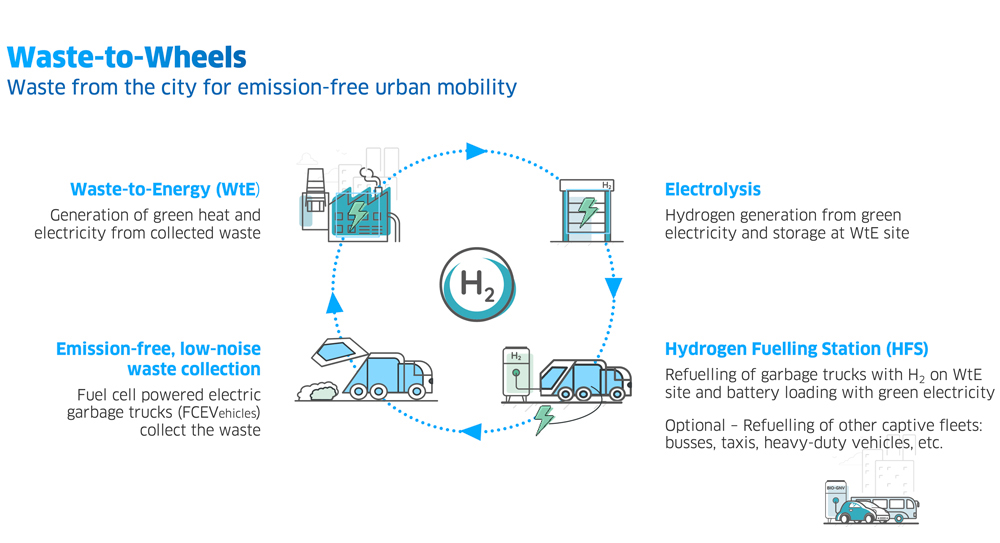Tractebel article Waste-to-Wheels: Driving sustainable urban waste transport
After 2.5 years of truck design, manufacturing and production, the Tractebel-coordinated ‘Refuse Vehicle Innovation and Validation in Europe’ (REVIVE) demonstration phase is now underway. A total of 15 custom-built hydrogen fuel cell electrical vehicle (FCEV) trucks are scheduled to hit the road by 2022. These deployments will put sustainable urban waste transport in the spotlight.
The Tractebel Engie energy transition experts are coordinating the REVIVE consortium and leading the Waste-to-Wheels market analysis and case study. Waste-to-Wheels is a circular model to transform plant waste into renewable fuel, where hydrogen is produced near an incinerator and used locally for various mobility applications. The aim is a zero-emissions solution to decarbonize heavy-duty vehicles and captive fleets (trucks, busses, taxis) that typically burn significant amounts of fossil fuels in the cities. Waste-to-Wheels projects are already commercialized by the Energy business line in Belgium, with the support of the Innovation Lab and Engie Benelux. The REVIVE return-of-experience aims to scale up this business for Tractebel and the technology partners.

Feedback on the first deployments of the hydrogen fuel cell garbage trucks will provide Tractebel and the consortium partners the opportunity to scale up Waste-to-Wheels, a big step in the drive towards clean and sustainable urban waste transportation powered by locally produced green hydrogen.
Read the full article on the Tractebel website.